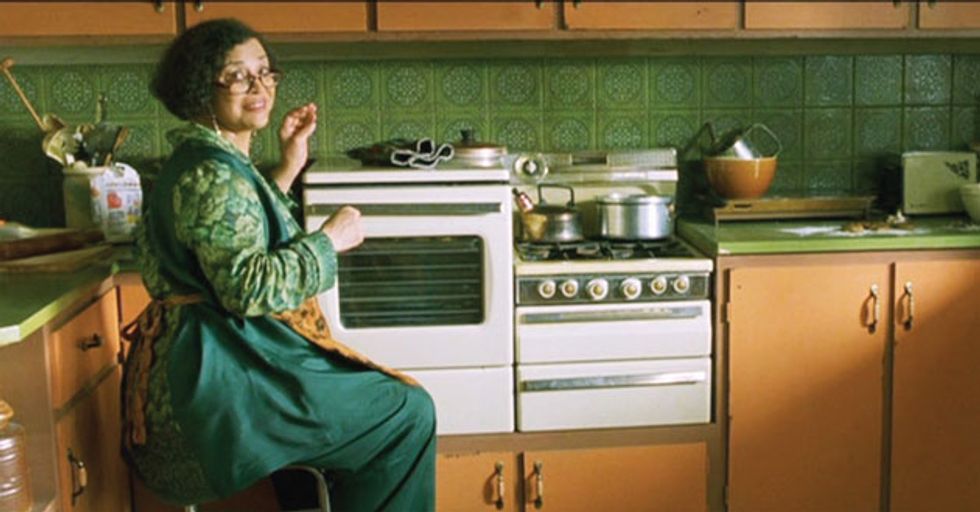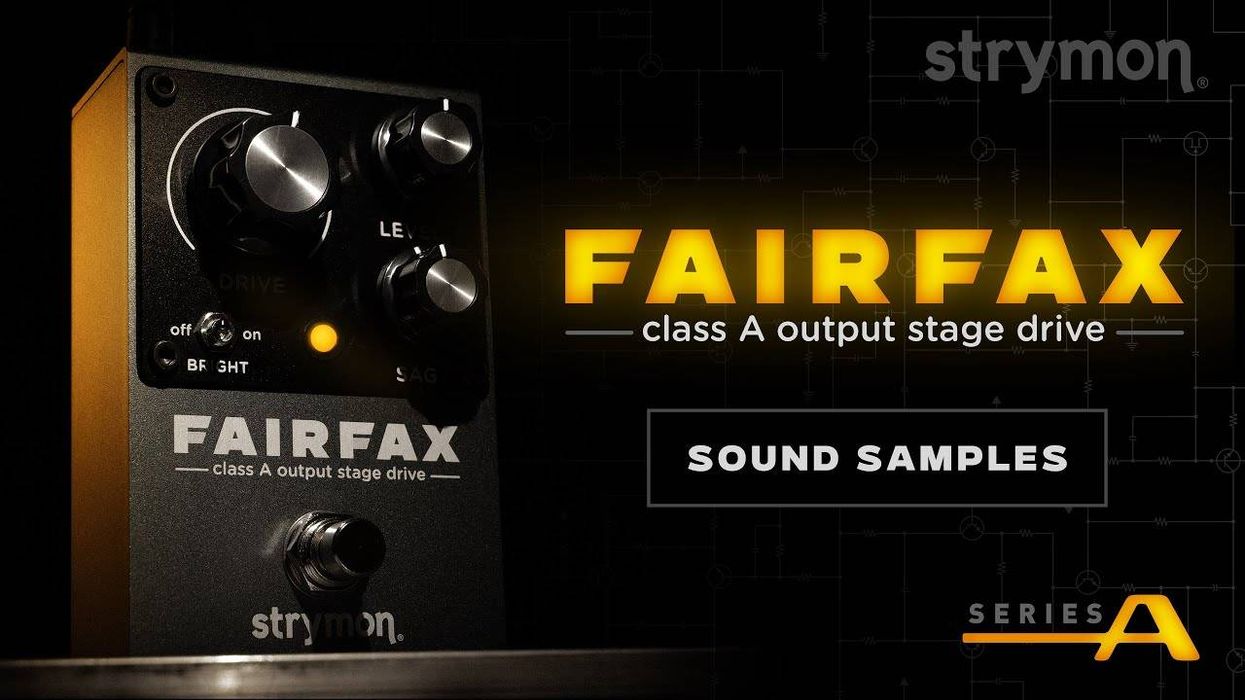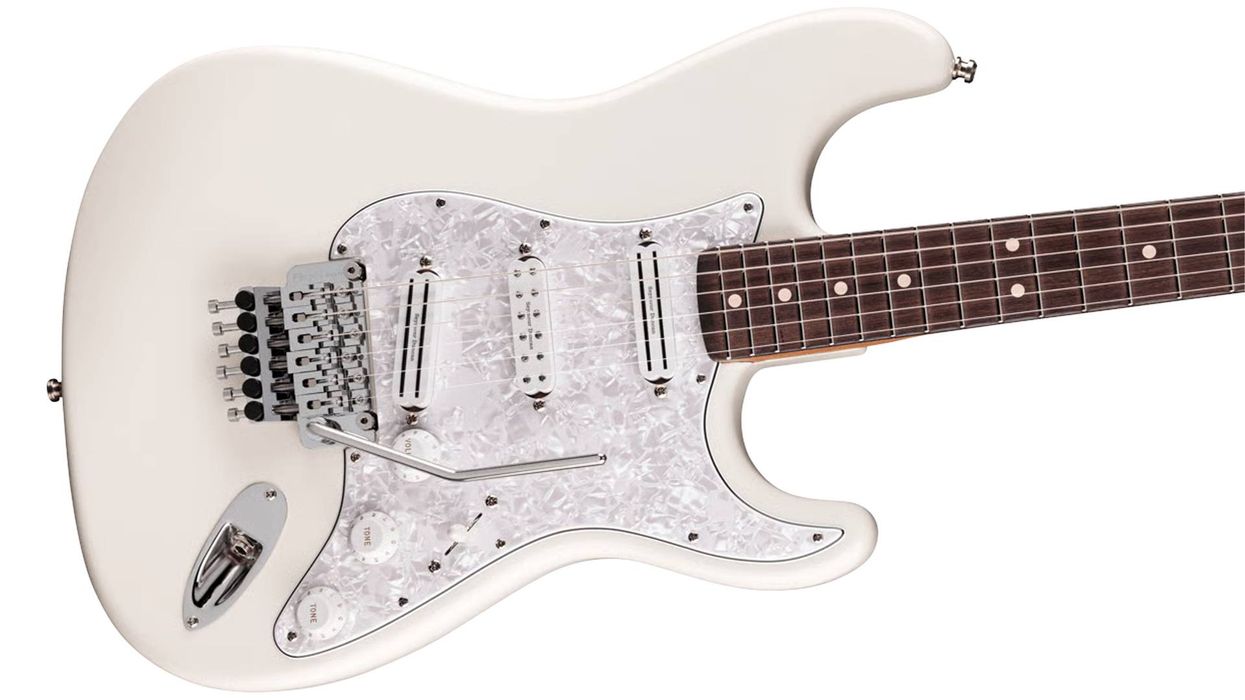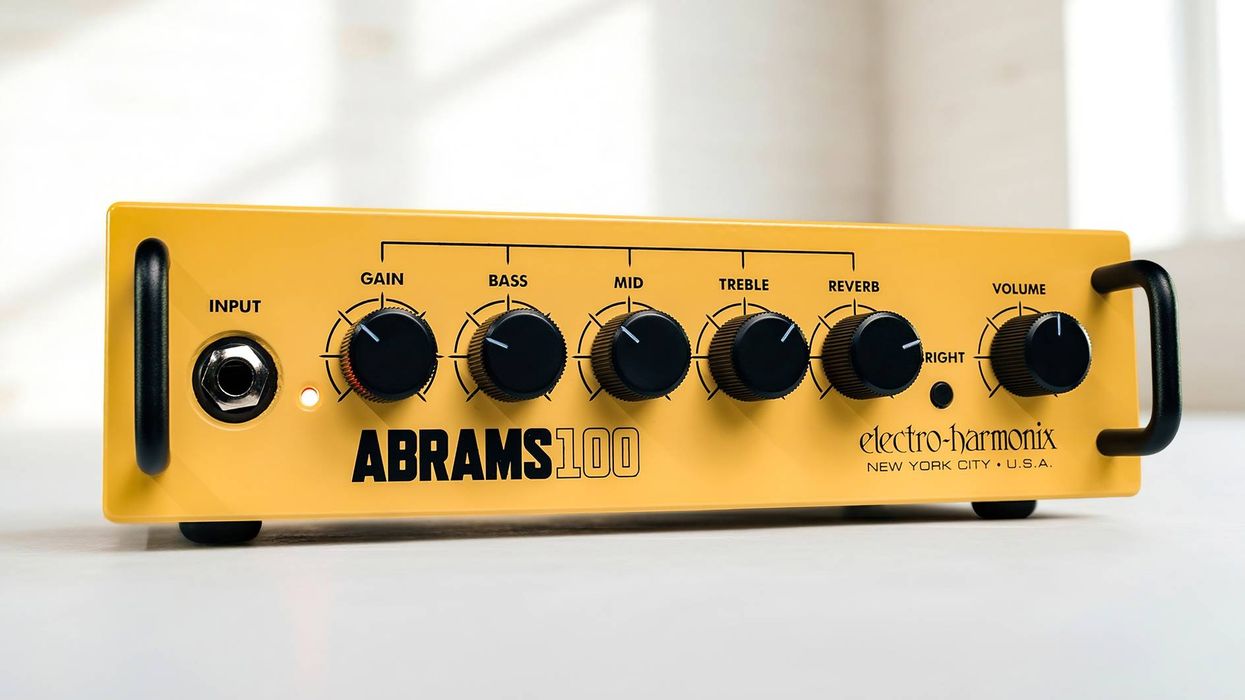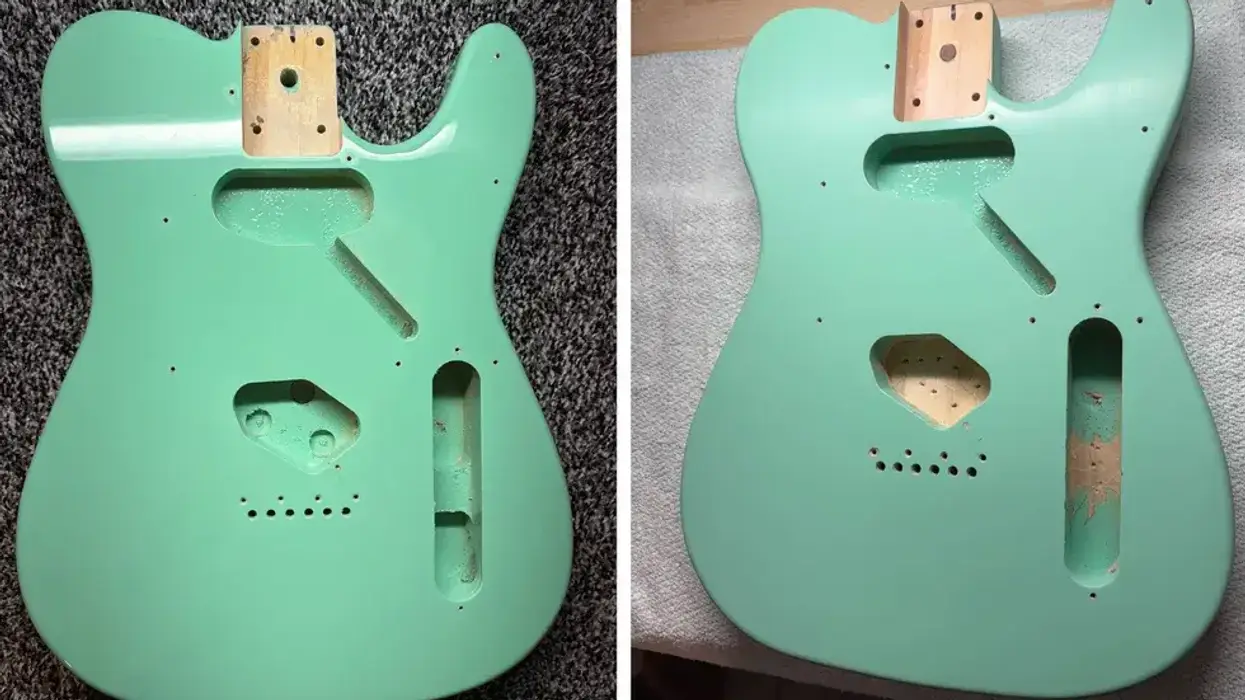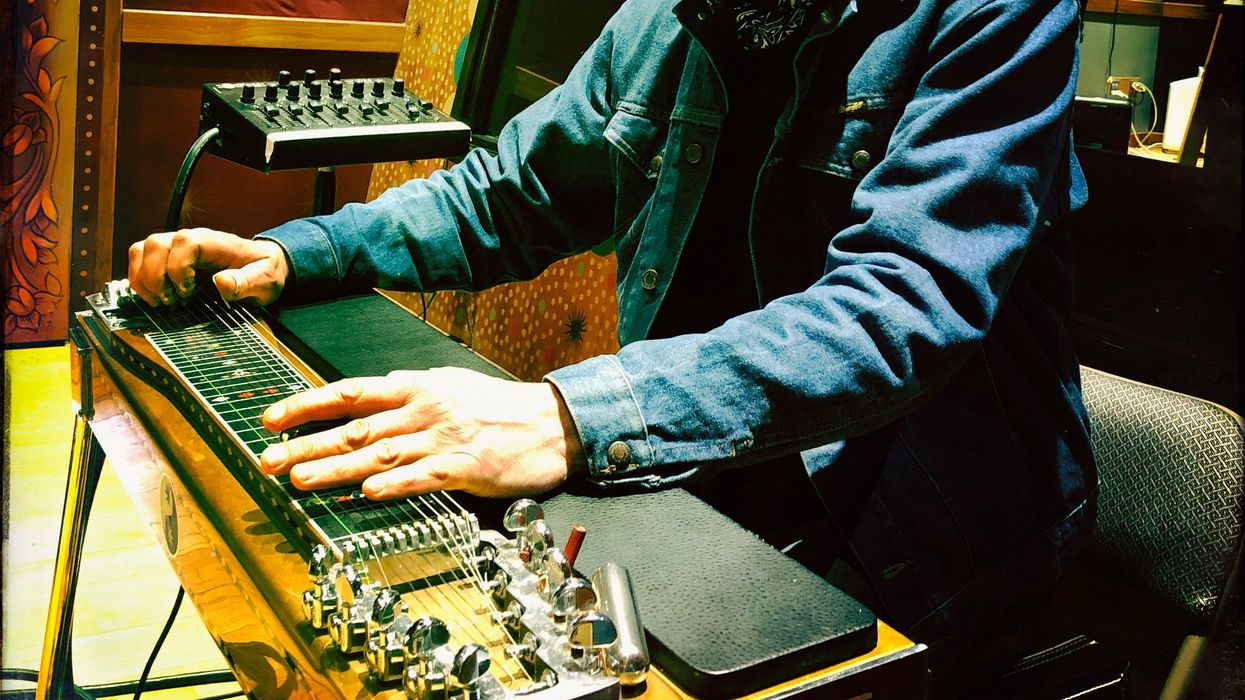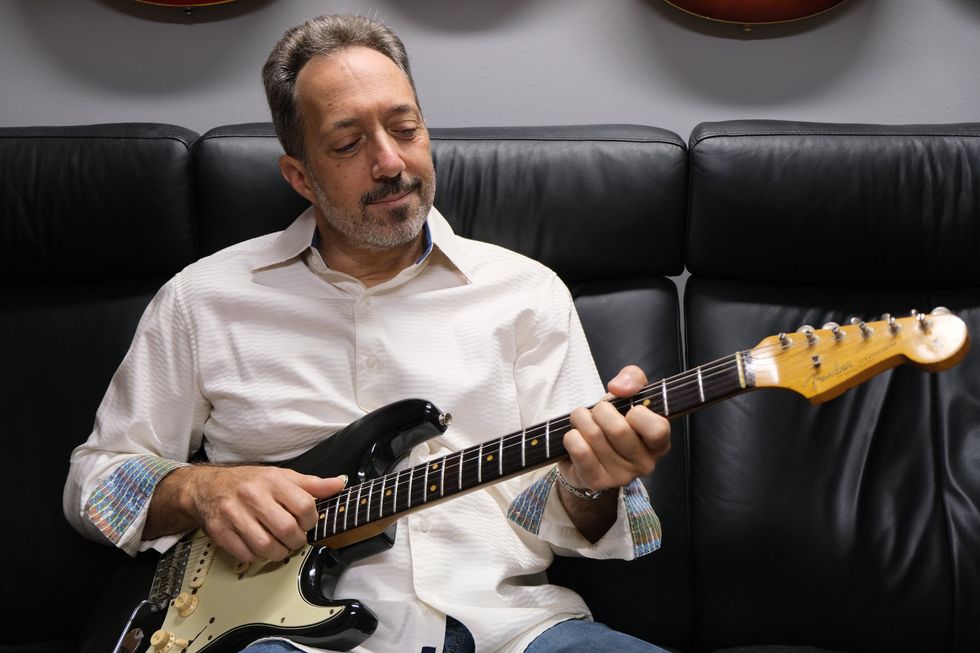One of the preeminent instincts of the artist is the drive to create an identifiable style—to leave a one-of-a-kind fingerprint on the hearts, minds, and optic or auditory nerves of their audiences. Few achieve fame or widespread recognition, yet those who stick with it and strive to nurture a unique approach eventually hit upon a handful of traits, quirks, and proclivities that identify them, consciously arrived at or not.
But just as humans can’t change the swirls and loop de loops that comprise the textured pads on our fingertips, musicians—even the tiny minority of players who really do leave an indelible mark—can’t prevent their artistic signatures from being a mysterious combination of intentionally and subconsciously cobbled-together sonic jigsaw bits they’ve heard somewhere or another. And if you were to ask the select few who’ve contributed a couple of strands of DNA to a musical gene pool that will have life beyond their mortal coils, most would admit to hating some of the quirks that are the building blocks of those strands.
I guess it’s no different from hating your own nose or butt or laugh, even though everyone else is fine with it and thinks you’re silly to worry about it. With considerable effort or debt accrual you could change those things, but would you still be you? Would the new body part or personality trait be better than the original? Might the custom-engineered replacement create an imbalance that’s worse, or wreak havoc in unforeseen ways—like make everyone shun you because you seem like a vain twat?
I digress, but only because the more interesting question is, as a guitarist and musician, how do you pinpoint the sonic traits that make you you? And should you pinpoint them—will doing so cement your appeal or sabotage and doom you to wanton repetition? How do you know when to flaunt those traits and apply them liberally or consciously try to subvert your primal instincts?
Eddie Van Halen claims he turned his back on crowds to keep them from seeing the two-handed tapping technique that became his trademark and changed the course of modern music. By 1986, boredom had sent him to the synths and major chorus dependency, both of which aren’t particularly heralded elements of his legacy. Yet when he returned to the early VH sound on his latest recordings, many felt it fell flat.
Not long after the Sex Pistols debuted, Adam and the Ants created an identifiable sound with thundering floor toms, low Wizard of Oz-ish chants, pirate-style screams and yodeling, and glam-punk guitars. Then a move toward slicker radio fare garnered Adam Ant greater glory just before he hit the inevitable slippery slope to the pop trash bin.
Jonny Greenwood and Ed O’Brien made their marks with stuttering echoes, fuzzed-out noise, uncommon compositional structure, and experimental instrumentation on OK Computer, but Radiohead is primarily hailed for refusing to adhere to a definitive sound or approach from one album to the next. Yet they still can’t remove their own fingerprints.
Clearly we’re all asking these questions. And somewhere along the line you might even start asking existential ones that are simultaneously profound and pompous. Critical to development, perhaps, but also possibly counterproductive. Questions like, do my playing and songwriting traits constitute something I might call “my sound”—and if so, how do I know it’s really me? And if I embrace those traits and make them a cornerstone of my musical life, how do I know when an urge to go in a different direction is a good idea or something that’ll mess up my me-ness?
Like I said, it can get quite ridiculous. And I certainly don’t have any answers. Yet, the questions aren’t going anywhere. It’s like that insufferable but kind of thought-provoking scene in The Matrix where the Oracle tells Neo not to worry about the vase, prompting him to ask, “What vase?” Turning to look for it, he sends it to the floor in a hundred pieces, whereupon the Oracle asks, “What’s really going to bake your noodle later on is, would you still have broken it if I hadn’t said anything?”
